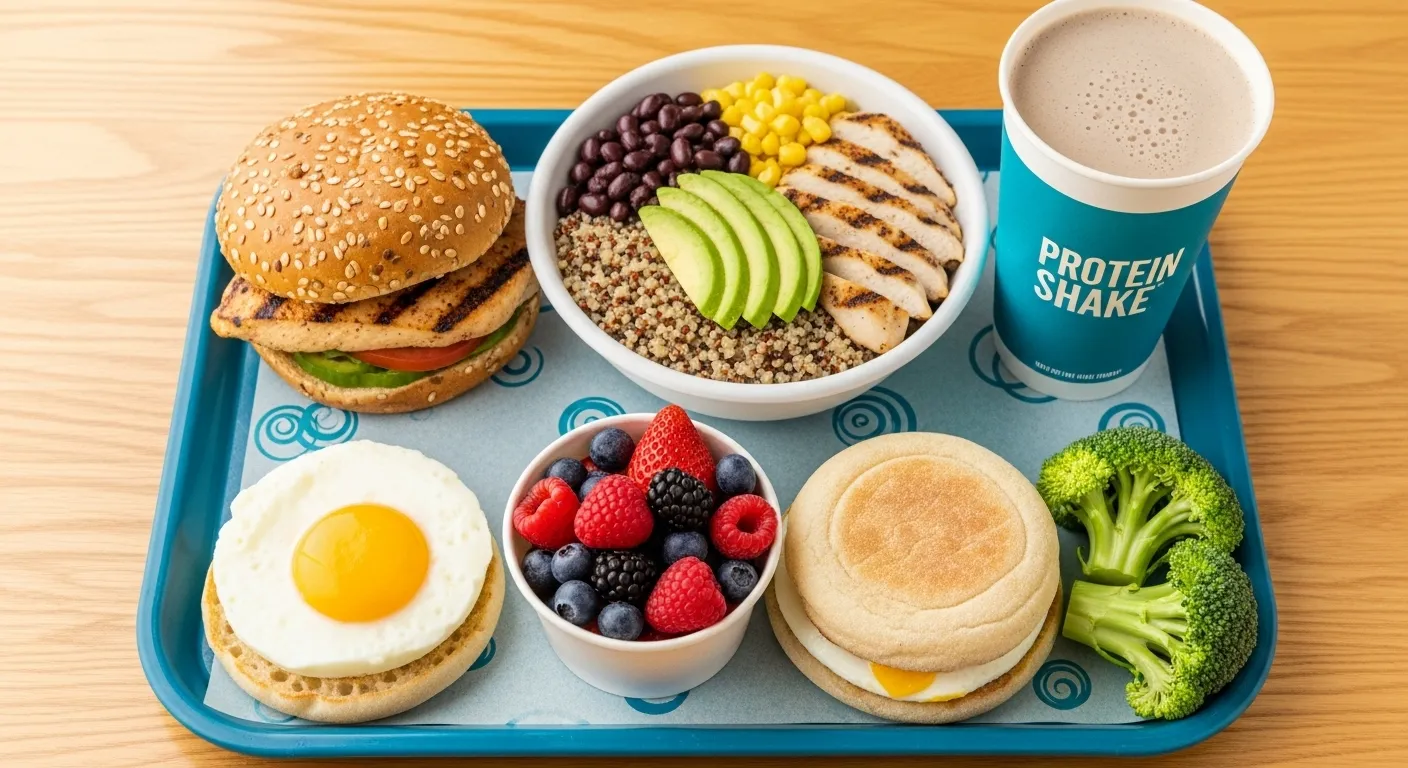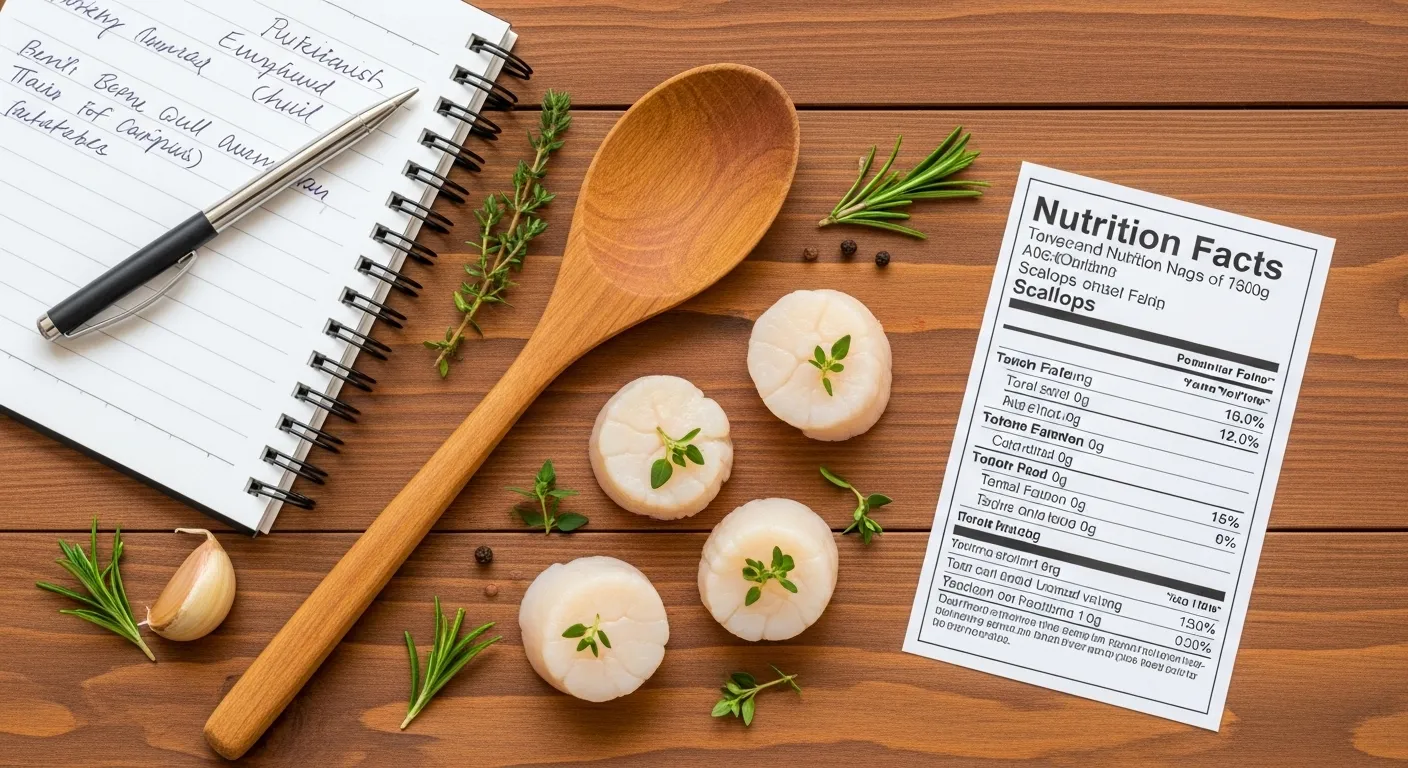Ribeye Nutrition Facts: Calories, Protein & Fat
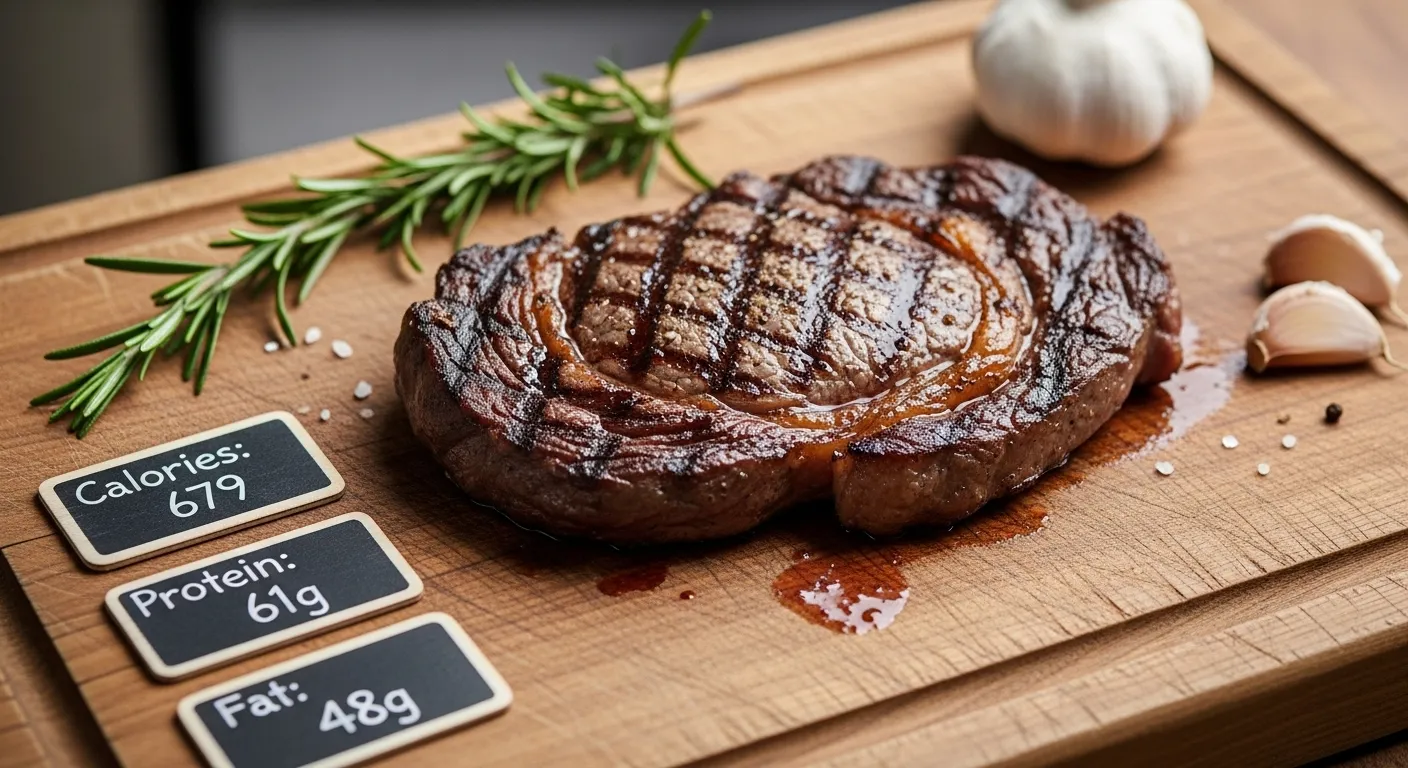
I’ve always had a soft spot for a good ribeye. There’s something about that marbling, those little streaks of fat, that tells you this cut means business. I’ve cooked ribeye a hundred different ways. Pan-seared, grilled, even smoked once when I got a bit too experimental.
But beyond that rich flavor, I’ve always been curious about what’s really inside. What are the ribeye nutrition facts? How much protein, fat, and calories does this beautiful piece of beef carry?
If you’re someone who loves steak but still cares about what you’re eating, let’s talk. Because ribeye isn’t just about taste. It’s loaded with nutrients that your body actually needs.
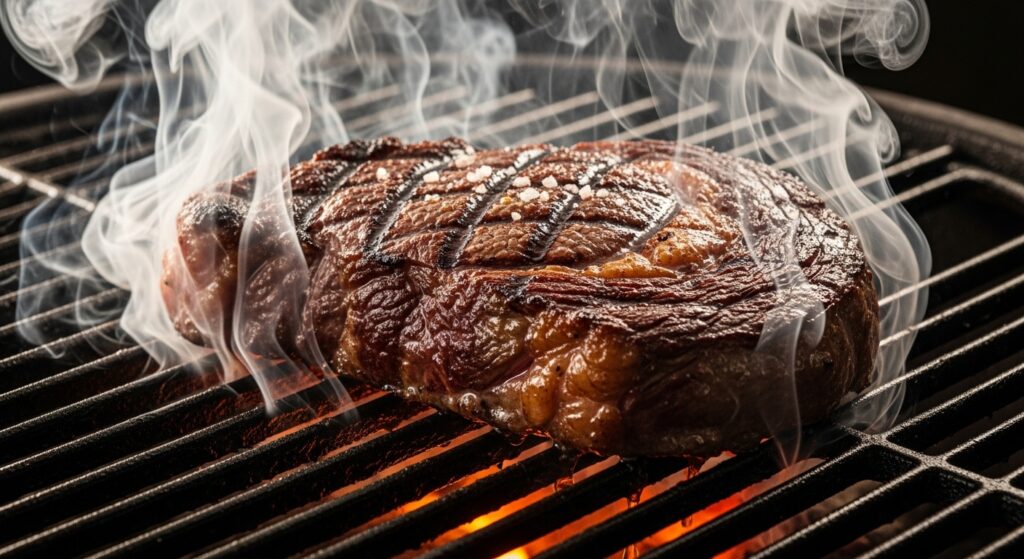
Ribeye Nutrition Basics
When people ask me about ribeye calories, I tell them straight, this cut isn’t for the faint of heart. It’s rich. It’s fatty. But it’s also full of protein and essential nutrients. Ribeye is the cut that gives you satisfaction and strength in one bite.
Here’s a simple breakdown of the ribeye steak nutrition facts (raw, per 100g):
| Nutrient | Amount (per 100g, raw) |
|---|---|
| Calories | 291 kcal |
| Protein | 24.8 g |
| Total Fat | 21.6 g |
| Saturated Fat | 9 g |
| Cholesterol | 80 mg |
| Carbohydrates | 0 g |
| Iron | 2.6 mg |
| Zinc | 4.8 mg |
| Potassium | 330 mg |
| Sodium | 55 mg |
Ribeye Nutrition Facts After Cooked
That’s the raw version. Once it’s cooked, things shift slightly.
| Nutrient | Amount (per 100g, cooked) |
|---|---|
| Calories | 310 kcal |
| Protein | 27 g |
| Total Fat | 22 g |
| Saturated Fat | 9.5 g |
| Cholesterol | 87 mg |
| Carbohydrates | 0 g |
| Iron | 2.4 mg |
| Zinc | 5.1 mg |
| Potassium | 340 mg |
| Sodium | 60 mg |
Cooking ribeye doesn’t change its nutrition drastically, but it does make it denser. The fat melts a bit, and water content drops, which means slightly higher calories per gram.
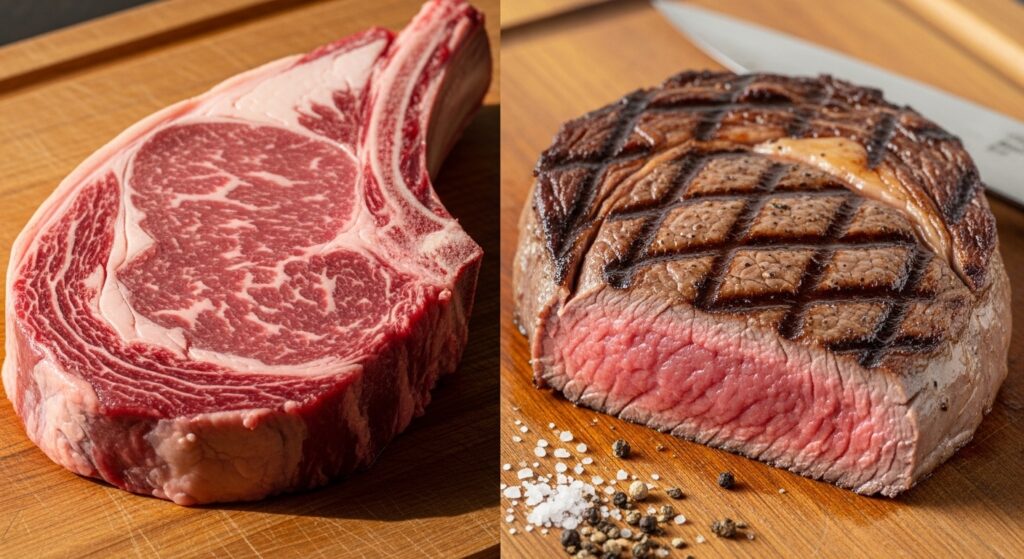
Calories in Ribeye: What You’re Really Eating
Let’s not sugarcoat it, ribeye calories are higher than lean cuts. But calories aren’t evil. They’re energy. If you’re someone like me who lifts weights or stays active, that energy goes straight into muscle recovery.
A typical 8 oz (225g) ribeye steak gives you around 700 calories. Sounds big, right? But out of that, nearly 200+ calories come from protein alone. That’s the kind of fuel that keeps your body strong and steady.
If you’re on a calorie-restricted diet, ribeye might not be your daily go-to. But if you’re on keto, low-carb, or bodybuilding diets, this steak is gold. No carbs, solid protein, and fat to keep you satisfied longer.
Ribeye Protein Content: The Muscle Builder
This is the part I love. Ribeye protein content is high-quality, meaning it’s a complete protein. It’s got all nine essential amino acids, the ones your body can’t make on its own.
If you’re into fitness, you know the deal: protein builds and repairs muscle. A 100g ribeye gives around 25 to 27 grams of protein, depending on how it’s cooked. That’s more than most protein shakes.
What I’ve noticed is, ribeye protein feels “heavier.” It satisfies. When I eat a ribeye after a workout, I don’t reach for snacks later. That’s the difference between real food and powders.
Ribeye Fat Content: Not All Fat Is Bad
When people hear “fat,” they panic. But the ribeye fat content isn’t all the same. It has monounsaturated fats (the same kind found in olive oil), which support heart health. Yes, it also has saturated fat, but moderation is the key.
| Fat Type | Amount (per 100g) |
|---|---|
| Total Fat | 21 to 22 g |
| Saturated Fat | 9 g |
| Monounsaturated Fat | 10 g |
| Polyunsaturated Fat | 1 g |
| Omega-3 Fatty Acids | 30 mg |
Those omega-3s are what make ribeye interesting. You don’t usually think of steak as an omega-3 source, but grass-fed ribeye carries a bit of it. It’s not salmon-level, but it’s there.
I often tell people, if you’re choosing ribeye, go for grass-fed beef. It’s not just tastier; it’s nutritionally richer. You’ll get better fat ratios and cleaner protein.
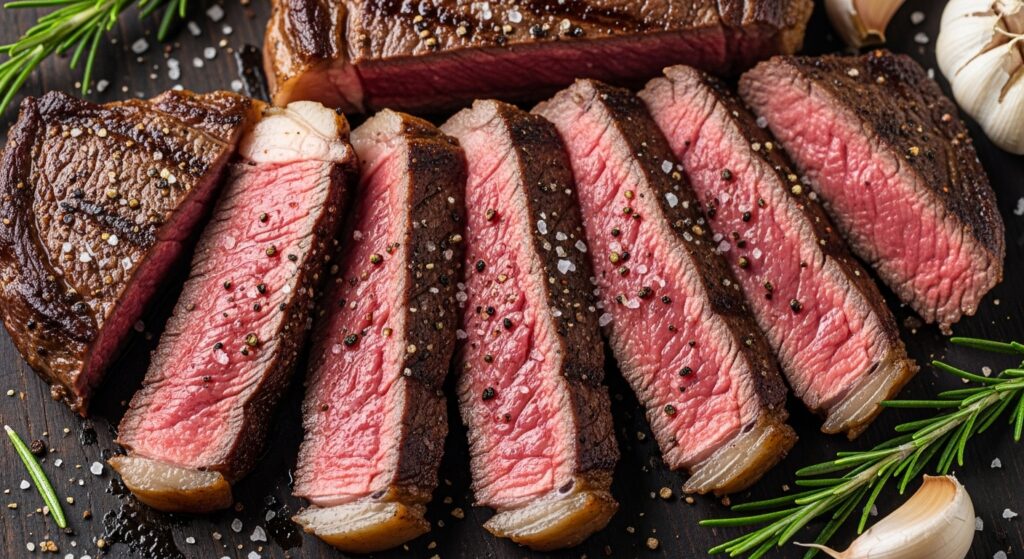
Vitamins and Minerals in Ribeye
Ribeye isn’t just protein and fat. It’s a nutrient powerhouse. When I looked deeper into the ribeye vitamin content, I realized how complete it is.
Here’s what you’ll find per 100g (cooked):
| Vitamin / Mineral | Amount |
|---|---|
| Vitamin B12 | 2.3 µg |
| Vitamin B6 | 0.6 mg |
| Niacin (B3) | 5.5 mg |
| Iron | 2.4 mg |
| Zinc | 5.1 mg |
| Phosphorus | 190 mg |
| Selenium | 25 µg |
These numbers might look small, but they’re potent. For example, that Vitamin B12, it helps with nerve function and red blood cell production. Most people who skip red meat actually end up low on B12.
Ribeye and Keto: A Perfect Match
If you’re following a keto diet, ribeye keto nutrition is perfect. No carbs, high fat, high protein. You’ll stay full for hours. The natural fat keeps your body in ketosis longer, and the protein helps preserve lean muscle mass.
I’ve been on keto cycles a few times. When I do, ribeye is always on my meal plan. It’s satisfying, and unlike chicken breast, it doesn’t feel dry or boring after day three.
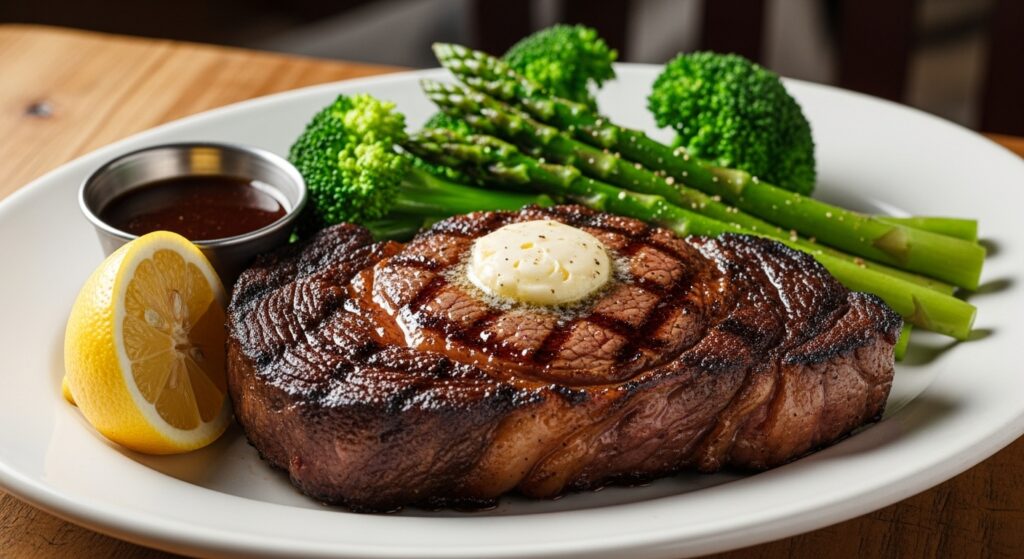
Ribeye Steak for Bodybuilding
As someone who’s spent years balancing fitness and flavor, I can say this, ribeye steak for bodybuilding works. You get dense calories for growth, and the fat gives you hormonal balance. Testosterone production, muscle recovery, it all benefits from healthy fats.
That’s why old-school bodybuilders always ate steak. They knew something modern diets forget, real food builds real muscle.
Ribeye Steak Cholesterol and Heart Health
Let’s talk honestly. Ribeye does have cholesterol, around 80 to 90 mg per 100g. But cholesterol in food doesn’t directly raise blood cholesterol for most people. What matters more is your overall diet balance.
If your diet’s loaded with vegetables, fiber, and you’re active, ribeye won’t hurt your heart. In fact, moderate intake might even help because of those monounsaturated fats.
Ribeye vs. Lean Cuts
Some folks compare ribeye steak vs sirloin nutrition, and yeah, sirloin is leaner. It’s got fewer calories, less fat. But it’s also less juicy and flavorful. I see ribeye as the “balance” cut, rich but nutrient-dense. You eat less, but you’re satisfied more.
Final Thoughts
I’ve cooked ribeyes on quiet Sundays and after long gym sessions. Every time, it reminds me that food can be both indulgent and nourishing. Ribeye nutrition is more than numbers on a chart, it’s real fuel. It’s flavor with purpose.
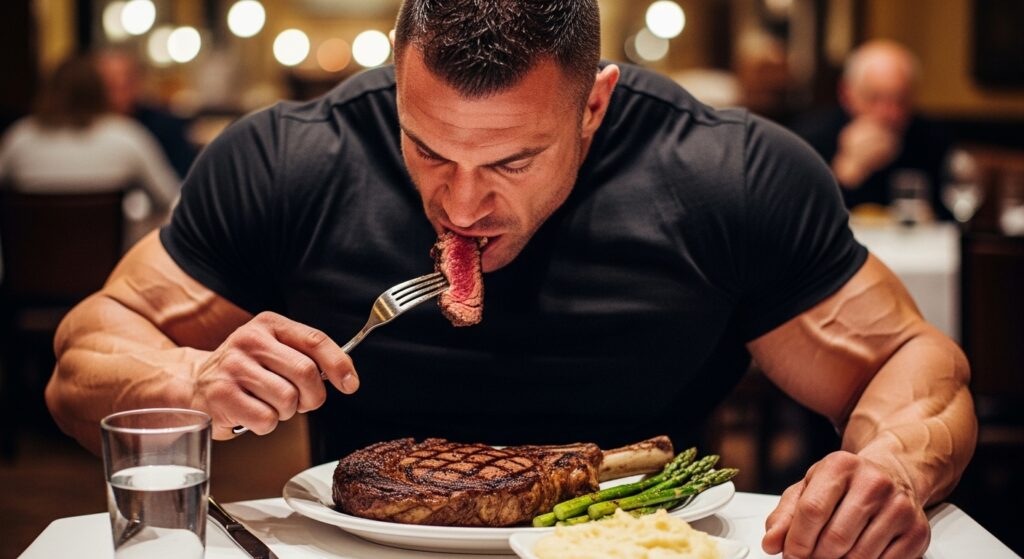
So if you’re someone who enjoys good food but still cares about what’s inside, ribeye deserves a place on your plate.
FAQs
1. How many calories are in a ribeye steak?
A 100g cooked ribeye has about 310 calories. A full 8 oz serving has roughly 700 calories.
2. How much protein is in ribeye steak?
Ribeye gives around 25 to 27 grams of protein per 100g cooked, great for muscle growth and recovery.
3. Is ribeye good for a keto diet?
Yes. Ribeye is perfect for keto. It’s high in fat, zero carbs, and full of protein.
4. Does ribeye have carbs?
No. Ribeye contains 0 grams of carbs, it’s pure protein and fat.
5. Is ribeye healthier than sirloin?
Ribeye has more fat and flavor. Sirloin is leaner. If you want lower calories, go sirloin; for taste and richness, ribeye wins.
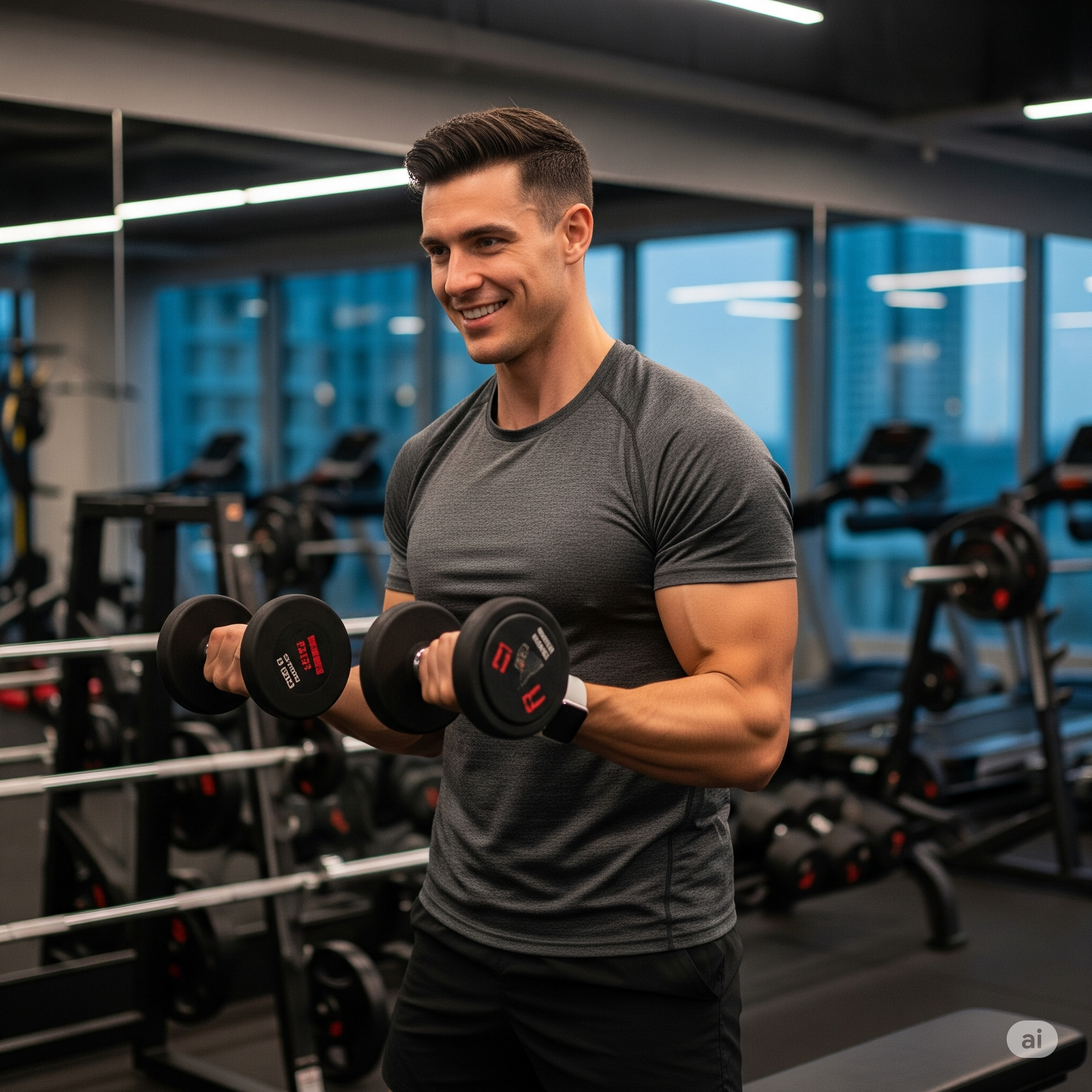
I’m Benjamin Clark, dedicated to elevating your athletic performance. Get targeted fitness plans, injury prevention techniques, sports psychology insights, and the latest in nutrition. Let’s train smarter.


